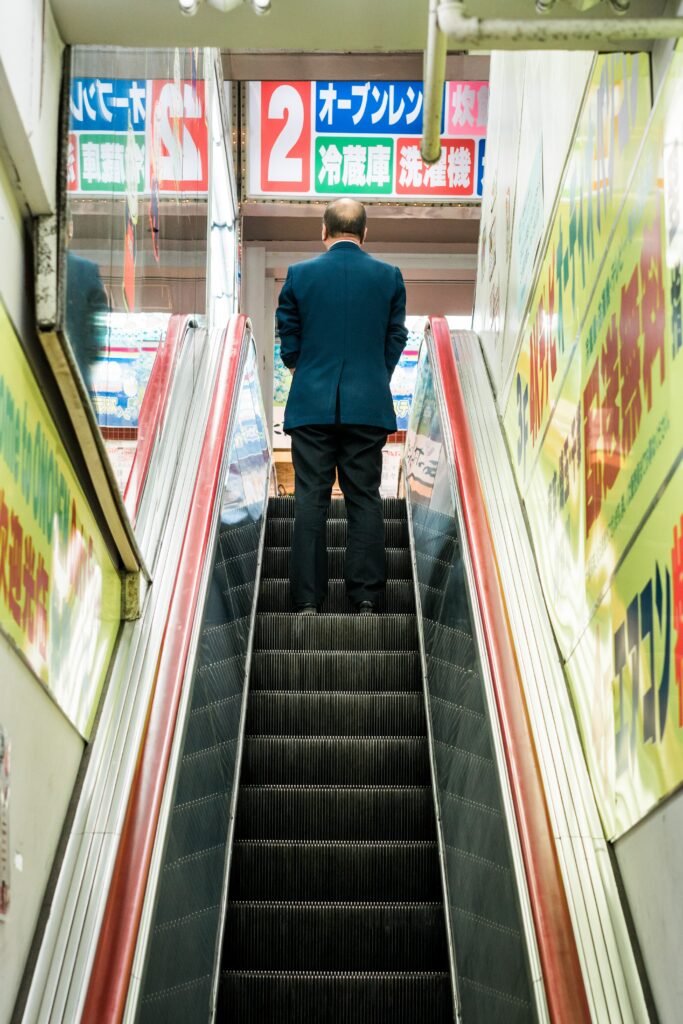The well-trodden career patherways of yesteryear have been decimated, and those that have survived are no longer predictably progressive. Today ambitious individuals must become masters of their own destiny and organisations need to support talented individuals by creating an environment where mobility, flexibility and adaptability become the new norm.
The CoVid-19 pandemic and the economic challenges that follow will require organisations to reinvent and transform themselves. High capital costs, furlough and social distancing have led to business and product lines being forfeited and with them, traditional succession-planning strategies. Shifts in operating models will focs on cost management and restrictions in investment in human resources.
The current employment climeate will mean that voluntary exits will fall, leading to a contraction in Director level and officer level positions. The re-evaluation of role responsibility and abatement in senior level hires will dramatically reduce mobility, blurring the lines of responsibility between Director level roles and leading to stagnating careers for those wishing to pursure Director level roles.
One the one hand organisations must proactively manage expectations regarding traditional position and salary measures of success to avoid disengaged employees. On the other there must be support to help individuals embrace person-centered career development, requiring a self-concept of career success; happiness, self-determination or satisfaction from developing both personally and professionally.
Remuneration will remain a source of contention, especially with legacy issues regarding when to reinstate wages to full salary. This will be caused by agitation with subdued salary increases following a collective understanding of doing what is necessary to keep the company going during lockdown. However, organisations that offer development opportunities and rewarding work can circumnavigate problems created by restrictive pay conditions.
It is critical that organisations plan for the capability requirements for tomorrow. Although headcount reduction may remain a theme for the short- to medium-term, there are areas where the War on Talent persists. Organisation’s should reevaluate their talent planning to their changing operating models to ensure future business requirements can be met with the necessary talent resource.
Career challenges
Pre-Covid-19 flattening pyramid structures impeded traditional succession planning. We do not yet know the ramifications of the post-pandemic corporate reality poses for recruitment, progression, career patterns and employee engagement.
A key challenge in a difficult employment market is the maintenance of motivation and engagement among the surviving employee population, especially with a continuing cost focus constraining efforts to improve employee engagement.
What is known is the importance of protecting the employer brand during such a turbulent period. Trust, reputation and culture are often neglected assets as organisational priorities seek to manage a rapidly changing business environment.
Badly handled headcount reduction coupled with laissez faire career development processes will result in diminishing levels of trust among the workforce, decreased job satisfaction and impact the reputation of an organisation.
At an individual level, taking the initiative and responsibility over career decisions is essential.
Individuals facing career stasis because of reengineering of organisational business models and a turbulent employment market will discover that the skills and experience once coveted by firms are no longer relevant.
Fewer potential job openings and career opportunities and reduced numbers of management and upper level positions will be available for emerging talent to progress their career upwards.
The continued focus on cost, means that many employees are cognisant not only of the precarious nature of their current position, regardless of how well they perform, but the risk and impact to their future career prospects.


The War on Talent
The post-CoVid world will continue to have an employment paradox, where despite relatively high unemployment levels, the War on Talent will persist. The loss of top performers to competitors should remain a concern.
The speed of change in the business environment will create an imbalance between the skills organisations require and well-qualified individuals in the labour market to fill the posts available.
Organisations will be looking for employees to develop a diversified skill-set. Despite the difficult trading climate, organisations must remain proactive in aligning their future resourcing and talent management requirements to business strategy. With continuing cost pressures exemplary recruitment and selection practices will be required to attract the skills and experience organisations require now, and in
the future.
What does that mean for career development?
As traditional routes for career progression are replaced by competition for new skills and knowledge requirements, it is clear that the changes in the external environment will have a profound effect on the shape of career prospects within and between organisations.
Individuals who have achieved notable success believe their career progression is a result of the contribution they make to the business and their capability. Relevancy and the opportunity to develop transferable and generalist skill sets will be the key to satisfying the many professionals who cite a lack of career progression as the factor most likely to cause them to move jobs and become disengaged in their current job role.
The new career paradigm

Most professionals would consider that the frequency of change in a job is an important factor, with a period of three to four years between moves considered to be acceptable. However, a notable casualty of organisational downsizing will be the impact on the individuals’ belief in their control over their own destiny resulting in a decision to take a career sojourn.
This ‘wait and see’ strategy is not necessarily a safe option, and all to often will lead to individuals having a sudden realisation that their career has stalled.
Worse still, the ‘temporary’ halt could turn into career suicide, if the organisations ceases to be open for business; especially if it is only after an individual is handed their notice they examine whether their current capability is externally relevant.
The post-pandemic environment will simply too complex for narrow casting.
Skills diversity is essential if an individual has ambitions to progress to Senior Management level. In a globalised market developing cultural awareness with overseas experience is fundamental. A broad understanding of business and organisational change will be valuable. As the economy recovers the shift away from cost reduction would be aided by business development and marketing experience.
In a rapidly changing landscape, the traditional intersections of an individual’s personal development: work experience, education and training, are no longer sufficient to guarantee longevity of career success and upward progression. Relevancy is borne out of the unerring commitment to personal growth, curiosity pertaining to the wider organisational context, a desire to learn and the pursuit of self-improvement.
A new approach to career progression
Career development planning must be more flexible, more strategic and designed to make an individual more visible than ever before. Skill and performance in your current position alone will not be enough to get ahead of those competing for the limited openings further up the hierarchical pyramid and the achievement of the desired career success.
The new career development paradigm requires individuals to develop a high level of careerism; that is boldly enacting the concept of the ‘boundary-less career’ as a career strategy. Individuals must embrace a worldly approach to development opportunities, coupled with a preference for a frequent change of organisations,
to get ahead.
For organisations, a holistic approach to talent resourcing and succession planning conjugated with a broader interpretation of talent and development accomplishments is needed to develop greater levels of mobility laterally as well as hierarchically.
Broaden your horizons
In the post-pandemic world individuals must develop a new mind-set focused on amassing a rounded skill set, a relevant knowledge base and work experience in areas where the organisation faces challenges if they are to progress their career.
Very often individuals will get bogged down in a narrow technical post and forget to pursue wider business responsibilities. Seeking additional operational responsibility, and challenging work projects in conjunction with in-role duties will provide individuals with the opportunity to become more sensitive to wider business needs.
The new career paradigm may place more emphasis on individuals proactively managing their career development but the organisation still has a role in shaping future careers.
Organisations must be mindful of legacy, using development as a retention and reward mechanism and maintaining the talent pipeline in line with business strategy enabling the organisation to emerge for the downturn in a stronger position.
Creating internal mobility options and a multi-faceted learning environment will support the ‘climbing wall’ career paradigm. Organisations need to offer varied development opportunities an enable individuals to easily diversify into other areas in order to progress their career avoiding restrictions caused by the changing internal and external landscape.














1 Comment
Great article Carrie.
I think that there is a really interesting point about how companies need to think about career development for their employees. Apart from entry level, broad brush programmes designed for a large cohort (e.g. “management” training) are not going to cut it. I think we will see the rise of “personalised” development programmes that are designed for the individual, in the same way that we are seeing “personalised” health-care. This will require managers to have not only much deeper conversations with their staff about career ambitions, but also become more educated on the various paths to help them get there.